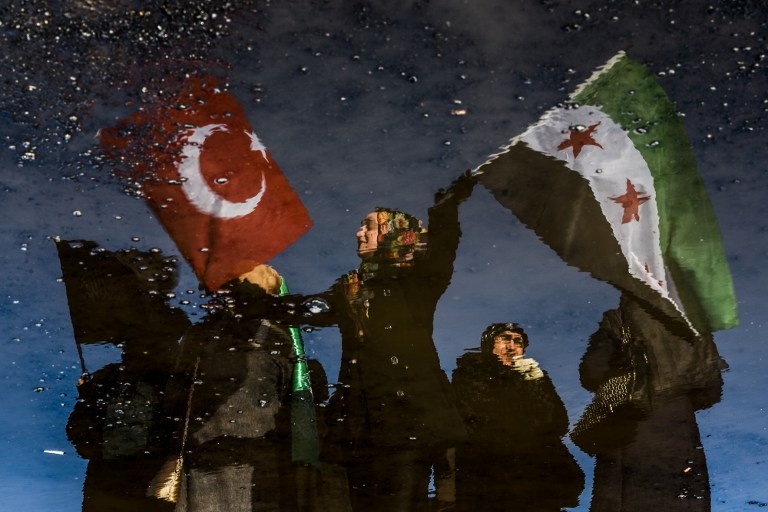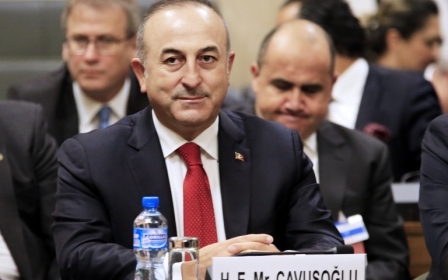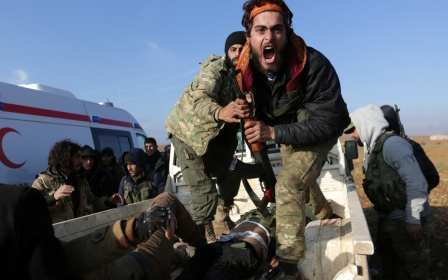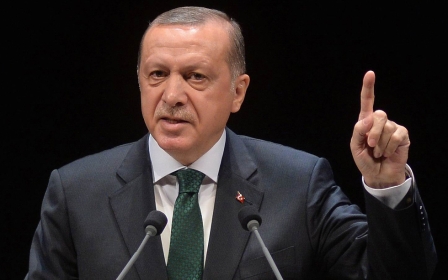'No longer realistic': Turkey admits U-turn on policy to rid Syria of Assad

Turkey can no longer insist on a resolution of the conflict in Syria without the involvement of President Bashar al-Assad, as the situation on the ground has changed dramatically, Turkey's deputy prime minister said on Friday.
"As far as our position on Assad is concerned, we think that the suffering of (the) Syrian people and the tragedies, clearly the blame is squarely on Assad. But we have to be pragmatic, realistic," Mehmet Simsek told a panel on Syria and Iraq at the World Economic Forum in Davos.
"The facts on the ground have changed dramatically, so Turkey can no longer insist on a settlement without Assad, it's not realistic," he said.
Denial
But Simsek's office denied that Turkey had made a u-turn in policy towards Assad.
"Deputy PM Simsek’s response to a question was clear and he said that Assad is the cause of the tragedy in Syria; that it would be impossible to buy into a solution that includes Assad; the United States failed to carry out its responsibility and that Iran and Russia changed the reality on the ground.
"The area that now needs to be focused upon is a ceasefire and the protection of peoples’ lives," said a statement by the Simsek's office on Friday.
"However, the Sputnik news agency tried to distort the minister’s remarks by using it out of context and alluded that he said 'Turkey will no longer insist on an Assad-free agreement'," added the statement.
"The minister never made such a comment; this is how Sputnik chose to interpret it."
Turkey has long insisted that Assad must go for sustainable peace to be achieved in Syria. But it has become less insistent on his immediate departure since its recent rapprochement with Russia, which backs the Syrian leader, and ahead of peace talks planned in Kazakhstan next week.
Ceasefire
Ankara has supported various rebel groups fighting Assad in Syria, and is currently leading operations against the Islamic State group in al-Bab, north of Aleppo.
Bassam Jaara, a Syrian opposition activist, tweeted his reaction: "Turkish deputy prime minister: ‘It is not realistic for Ankara to insist on settling the conflict in Syria without Assad!’ With friends like these you don’t need enemies."
President Tayyip Erdogan's spokesman said last week that Turkey still believes a united and peaceful Syria is impossible with Assad, but wants to proceed "step-by-step" and see the outcome of the peace talks in Astana.
Syria expert Charles Lister throws in his two cents
Turkey and Russia brokered a ceasefire in Syria which has largely held in the run-up to the Astana talks, a process which follows the defeat of the Syrian opposition in the northern city of Aleppo last month.
The shift in Turkish policy comes after Erdogan said on 29 November that Turkey was fighting in Syria "to end the rule of the cruel Assad, who has been spreading state terror".
The Kremlin demanded an "explanation" from Erdogan over his comments, resulting in a backtrack by Turkey.
"The aim of the... operation is against terror, not against anyone or any country,” Erdogan said on 1 December.
"No one should have any doubts or take our statements to mean something else."
In September 2015 Erdogan had suggested he was open to Assad being part of a temporary transition process befoe backtracking.
Turkish soldiers killed in Syria
Five Turkish soldiers were killed in an attack in northern Syria blamed on the Islamic State group, local media reported Friday, quoting the Turkish military.
Another nine soldiers were wounded in the bombing in Al-Bab, where Turkish-backed rebels have suffered heavy casualities in a weeks-long bid to retake the town from IS, the private Dogan news agency said.
Middle East Eye propose une couverture et une analyse indépendantes et incomparables du Moyen-Orient, de l’Afrique du Nord et d’autres régions du monde. Pour en savoir plus sur la reprise de ce contenu et les frais qui s’appliquent, veuillez remplir ce formulaire [en anglais]. Pour en savoir plus sur MEE, cliquez ici [en anglais].




